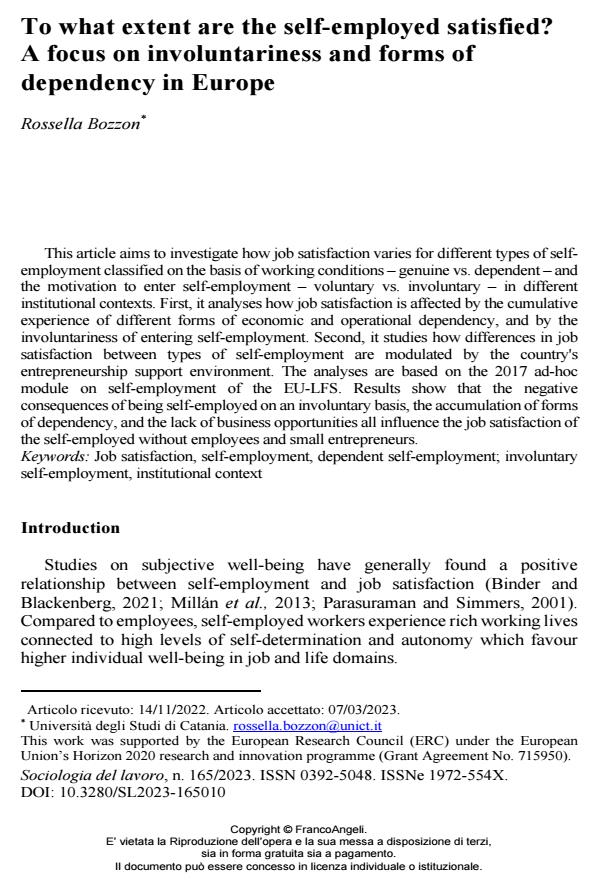To what extent are the self-employed satisfied? A focus on involuntariness and forms of dependency in Europe
Journal title SOCIOLOGIA DEL LAVORO
Author/s Rossella Bozzon
Publishing Year 2023 Issue 2023/165
Language English Pages 23 P. 201-223 File size 330 KB
DOI 10.3280/SL2023-165010
DOI is like a bar code for intellectual property: to have more infomation
click here
Below, you can see the article first page
If you want to buy this article in PDF format, you can do it, following the instructions to buy download credits

FrancoAngeli is member of Publishers International Linking Association, Inc (PILA), a not-for-profit association which run the CrossRef service enabling links to and from online scholarly content.
This article aims to investigate how job satisfaction varies for different types of self-employment classified on the basis of working conditions – genuine vs. dependent – and the motivation to enter self-employment – voluntary vs. involuntary – in different institutional contexts. First, it analyses how job satisfaction is affected by the cumulative experience of different forms of economic and operational dependency, and by the involuntariness of entering self-employment. Second, it studies how differences in job satisfaction between types of self-employment are modulated by the country's entrepreneurship support environment. The analyses are based on the 2017 ad-hoc module on self-employment of the EU-LFS. Results show that the negative consequences of being self-employed on an involuntary basis, the accumulation of forms of dependency, and the lack of business opportunities all influence the job satisfaction of the self-employed without employees and small entrepreneurs.
Keywords: Job satisfaction, self-employment, dependent self-employment; involuntary self-employment, institutional context.
Rossella Bozzon, To what extent are the self-employed satisfied? A focus on involuntariness and forms of dependency in Europe in "SOCIOLOGIA DEL LAVORO " 165/2023, pp 201-223, DOI: 10.3280/SL2023-165010